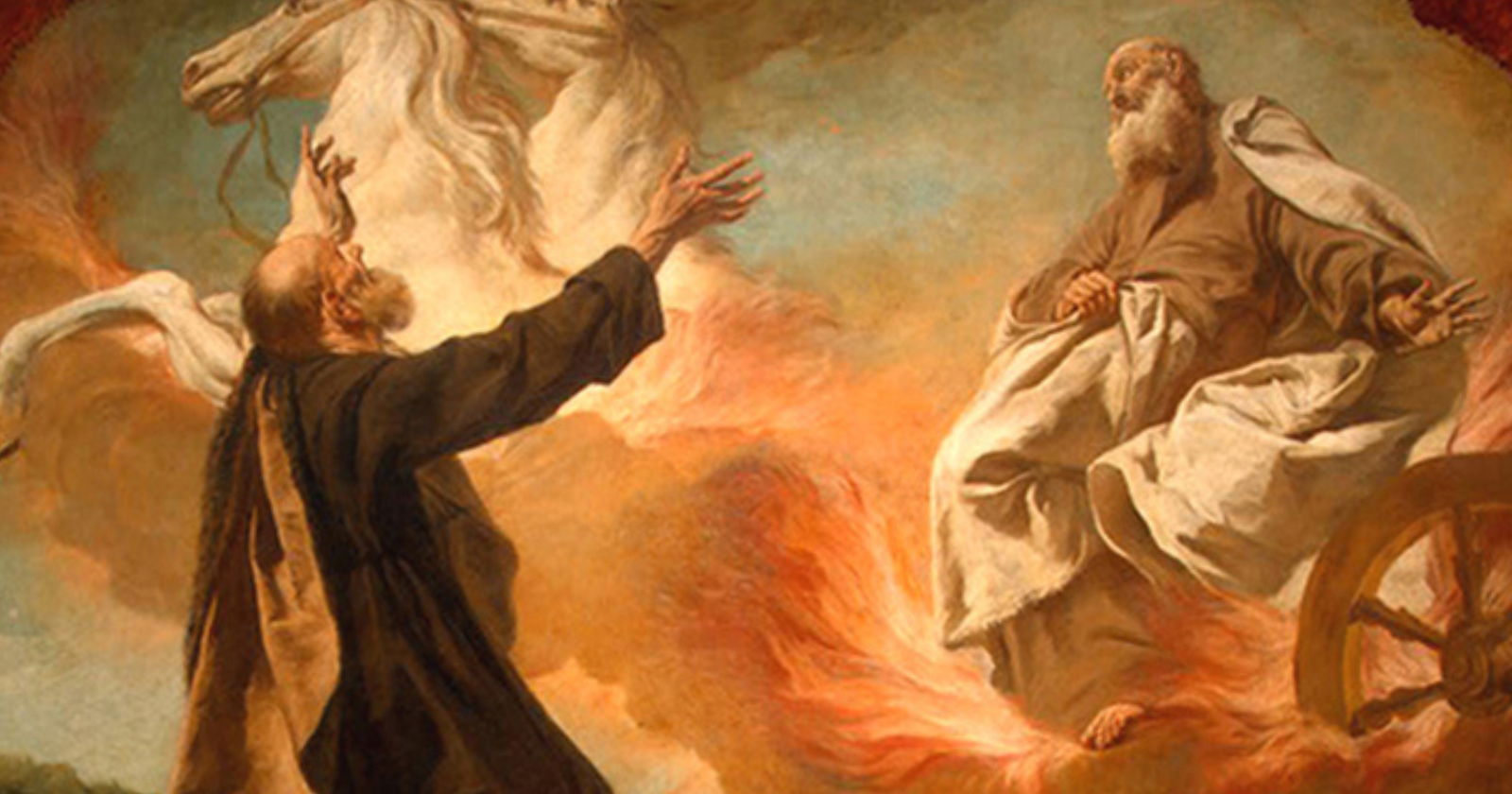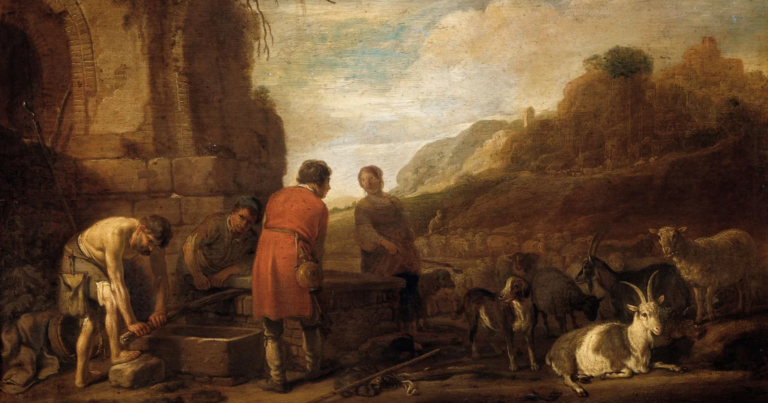“And he answered, Fear not: for they that be with us are more than they that be with them”.
2 Kings 6:16
The Second Book of Kings presents a rich tapestry of stories that illustrate the triumphs and failures of Israel’s kings and their impact on the nation’s faith journey.
It offers profound lessons on leadership, obedience to God, and the consequences of turning away from His commandments.
This historical narrative not only recounts the events that shaped ancient Israel but also provides Christians today with insights for navigating life’s complexities with faithfulness.
In this article, we’ll discuss the key themes of the Second Book of Kings and extract practical wisdom for modern Christian living, ensuring these ancient texts continue to guide us in our contemporary walk with God.
Overview of 2 Kings
The Second Book of Kings serves as a historical account of Israel’s monarchs, detailing their reigns over the divided kingdoms of Israel and Judah.
The narrative is clear-cut, documenting each king with a metric of morality—whether they did good or evil in the eyes of the Lord.
The text holds special attention for Hezekiah and Josiah, kings whose faithfulness brought prosperity to Judah.
This book not only records the religious fidelity and failings of these leaders but also intersects with archeological findings, such as the Moabite Stone, corroborating scriptural historicity.
Amidst tales of revolt and reform, prophetic figures emerge, including Elijah’s ascent to heaven and Elisha’s miracles.
In essence, the Second Kings encapsulates the spiritual trajectory of Israel and Judah, ultimately leading to exile as a consequence of covenantal disobedience.
With its methodical organization, this book provides a lens through which we can examine divine justice and mercy across generations.
Historical context
The Second Book of Kings, known as מְלָכִים in Hebrew and Βασιλεῖζ in Greek, stands as a pivotal work in scripture, bridging the Former Prophets and the Historical Books of the Old Testament.
Its narratives, originally unified with the First Book of Kings, were segmented in the Septuagint—the Greek translation of Hebrew Scripture—and have been passed down through Christian traditions in this divided form.
Imagine the Northern Kingdom of Israel, straying from their covenant with God, faces dire consequences.
The capture of Samaria by Assyria in 722 BC is more than just a military defeat — it’s the beginning of the end for the ten tribes of Israel, who soon vanish into the annals of history, becoming the legendary “Ten Lost Tribes.”
But the drama doesn’t stop there.
In a climactic turn, Jerusalem itself falls to Babylon in 587/586 BC, its Temple destroyed, its people exiled.
This isn’t just a tale of conquests and kings — it’s a narrative steeped in lessons of faith, identity, and the enduring human spirit amidst adversity.
Following the reigns of David and Solomon as recounted in the Books of Samuel, Kings presents a historical account of Israel’s monarchy, detailing the division into the northern kingdom of Israel and the southern kingdom of Judah.
Divided Kingdoms
The narrative arc of 2 Kings depicts a nation split into two distinct realms: the northern kingdom with its ten tribes known as Israel, and the southern kingdom named Judah, consisting of the tribes of Judah and Benjamin.
This division sets the stage for a succession of rulers whose deeds are meticulously recorded. The text serves as a moral barometer, assessing each king’s rule by a singular, pivotal question:
Did they do what was right in the sight of the Lord?
- Israel’s ten tribes often strayed from the covenant, leading to instability and idolatry.
- Judah, though not without fault, saw periods of reform and religious revival.
The dichotomy between obedience and rebellion is stark, with consequences that reverberate through the ages.
Faithful kings like Hezekiah and Josiah stand out as beacons of hope, their reigns marked by efforts to restore divine worship and adherence to God’s law.
In contrast, many other leaders led their people astray, resulting in divine judgment and national calamity.
The ebb and flow of piety and profanity among Israel’s kings not only shaped their immediate fortunes but left an indelible mark on their peoples’ destinies.
Hezekiah’s leadership
King Hezekiah of Judah is chronicled in 2 Kings as a ruler whose faithfulness to God set him apart.
His reign is noted for its devotion and decisive actions to protect his kingdom and reform its religious practices.
A defining moment of his leadership is highlighted in the scriptures:
The construction of a water conduit from the Gihon Spring into Jerusalem, a strategic feat that ensured the city’s survival during the Assyrian siege led by King Sennacherib.
This act of foresight by Hezekiah is corroborated by historical records and is emblematic of his wisdom and dedication to his people’s welfare.
His reliance on God during this period of crisis is further emphasized through his prayers for deliverance, which the biblical account credits as leading to a miraculous defeat of the Assyrian army.
Therefore, Hezekiah’s legacy, preserved in both 2 Kings and the corroborating accounts of Isaiah and 2 Chronicles, stands as a testament to the blessings bestowed upon a leader who places his trust in divine providence over human might.
Josiah’s reforms
In the annals of Judah’s kings, Josiah is distinguished for his vigorous religious reforms.
His story in 2 Kings reveals a young ruler who, upon discovering the Book of the Law in the Temple, becomes a catalyst for spiritual renewal.
This lost Scroll, possibly a part of or the entirety of Deuteronomy, reignited a commitment to covenantal fidelity within the kingdom.
The scriptures detail Josiah’s response to this discovery:
- He gathered the people to read aloud the words of the Law.
- He led the nation in renewing their covenant with the Lord.
Not surprisingly, these actions marked a significant pivot back to monotheism and away from the idolatrous practices that had taken hold.
Josiah’s efforts culminated in the celebration of Passover, an event unmatched since the days of the prophet Samuel, emphasizing a return to worship centered on God’s commandments.
His reign is thus highlighted as a period of spiritual awakening, setting a standard for leadership that prioritizes obedience to God and showcases the transformative power of rediscovering and adhering to divine law.
Extra-biblical corroboration
Before discussing the key lessons from this Scripture, we should note that the historical narratives of 2 Kings find remarkable validation through the Mesha Stele, also known as the Moabite Stone.
King Mesha of Moab’s rebellion, an event also documented in 2 Kings 3, is inscribed on this ancient artifact.
The stele provides a rare non-biblical perspective on the conflict between Moab and Israel, offering insights from the Moabite ruler himself.
This significant archaeological discovery bears the earliest extrabiblical reference to YHWH — the divine name of the God of Israel, affirming the historicity of the biblical text.
The existence of such corroborative evidence enriches our understanding of the era:
- It cross-verifies events and figures mentioned in 2 Kings.
- It solidifies the reality of the kingdoms and cultures described in Scripture.
That’s why the Moabite Stone stands as a testament not only to the complex geopolitical landscape of the time but also to the interwoven nature of history and faith.
As such, it serves as a tangible connection to a past that is often shrouded in the mists of time, bringing to light the enduring legacy of ancient narratives captured within sacred scripture.
5 lessons from Second Kings
1) Faithfulness leads, disobedience destroys
Through their lives and messages, the prophets continually presented a choice between covenantal faithfulness and disobedience—a theme that resonates deeply within the 2 Kings.
This book serves as a compelling narrative that showcases the outcomes of those who align with God’s will versus those who stray.
Think about it:
Kings Hezekiah and Josiah stand out as beacons of faithfulness, leading with godly integrity and reaping divine favor.
In contrast, the downfall of many kings and their kingdoms illustrates the harsh consequences of turning away from God.
It’s a powerful reminder that our choices have weight, shaping not just our destiny but also that of those we lead.
So, let’s pause and reflect: where does our allegiance lie, and what legacy are we building?
2) Your decision today sculpt the world of tomorrow
In Second Kings, the stories of various leaders lay bare a powerful truth:
The decisions of today forge the legacy of tomorrow.
Through the contrasting reigns of its kings, this book teaches us that leadership is far more than the immediate wielding of power.
It’s about the imprint left on the fabric of history.
The truth is that the kings like Hezekiah and Josiah didn’t just lead — they transformed, setting a course that would influence generations.
Their dedication to faithfulness and reform shows us the potential of positive leadership to inspire and elevate.
Yet, the narrative doesn’t shy away from the darker side, where the failure to lead righteously leads to downfall and disaster.
It’s a raw and honest reflection on the power of leadership to shape destinies, urging us to ponder deeply about the kind of legacy we aspire to leave.
3) Your faith can shape the nation’s destiny
Isn’t it fascinating how faith can steer the destiny of an entire nation?
Second Kings presents a compelling narrative that showcases this very principle.
Through the rise and fall of kings and kingdoms, we observe a recurring theme:
The pivotal role of faith in determining a nation’s fate.
Let me share an interesting fact in this context — the account of King Hezekiah, who trusted in the Lord during the siege of Jerusalem.
His faith led to miraculous deliverance, illustrating how deep belief can influence not just individual lives but the trajectory of a whole nation.
Exile teaches hard lessons, but hope remains
The theme of exile is a somber thread throughout the Second Kings.
The fall of Samaria and subsequent Assyrian exile depict Israel’s fragmentation due to covenantal abandonment.
Similarly, Judah’s downfall and Babylonian captivity mark a profound period of loss—of homeland, temple, and identity.
These accounts serve as a stark reminder of the consequences that befall a nation when it turns away from divine decrees.
But now, let’s consider this:
The exile wasn’t just a punishment — it was a profound lesson in humility and faith.
Second Kings doesn’t just recount the sorrow of loss. It also hints at the resilience of faith amidst despair.
That’s why I believe that the stories of exile challenge us to see beyond immediate suffering to the enduring promise of restoration.
They remind us that even in our lowest moments, faith can foster hope and lead to renewal.
Finding hope in restoration
Reflecting on Second Kings, I’ve been moved by the story of King Josiah and the profound impact of rediscovering and adhering to the Book of the Law.
It’s a stark reminder that no matter how far we may stray, there’s always a path back to hope and renewal.
Specifically, the narrative of King Josiah’s reforms offers a powerful lesson on finding hope in restoration.
When Josiah discovers the Book of the Law, he realizes the extent of Judah’s departure from God’s commands and leads the nation in a covenant renewal (2 Kings 22-23).
This act of returning to God’s ways, even after years of neglect, shows us that it’s never too late to seek restoration
Josiah’s commitment to God’s commands and his efforts to reform Judah inspire me to believe that transformation is possible, even in the darkest of times.
This passage challenges us to consider our own lives: are we ready to embrace change and seek restoration with faith and hope?
Why does the Covenant matter?
“If ye be willing and obedient, ye shall eat the good of the land.”
Isaiah 1:19
The importance of the covenant in the Second Book of Kings cannot be overstated.
It is the golden thread that weaves through the narrative, binding God to His people and setting the standards for their kings.
The covenant’s blessings and curses are vividly portrayed in the rise and fall of monarchs.
Hezekiah’s construction of the conduit and Josiah’s renewal of the covenant (2 Kings 22:8-23:3) exemplify obedience yielding divine favor.
Conversely, the loss of Israel and Judah’s autonomy illustrates the dire consequences of covenantal neglect.
These stories serve as a powerful reminder that faithfulness to God’s commands is integral to communal and individual prosperity.
“Neither did he leave of the people to Jehoahaz but fifty horsemen, and ten chariots, and ten thousand footmen; for the king of Syria had destroyed them, and had made them like the dust by threshing.” (2 Kings 13:7)
Here, the impact of unfaithfulness is depicted through military defeat, highlighting that prosperity and security are closely tied to spiritual obedience.
Prophetic presence and power
“The Lord was not willing to destroy Judah for David his servant’s sake, as he promised him to give him alway a light, and to his children.”
2 Kings 8:19
The wisdom found in the Second Book of Kings extends beyond historical accounts — it offers guidance for personal growth and spiritual understanding.
Elijah’s fiery departure to heaven is as much a sign of his prophetic authority as it is a symbolic passing of the baton to his successor, Elisha.
Elisha’s miracles, such as reviving the Shunammite woman’s son and feeding a hundred men with twenty loaves, echo the power and provision of God amidst the nation’s political and spiritual turmoil.
Reflecting on the actions of kings like Hezekiah and Josiah provides Christians with examples of godly leadership and the fruits of faithful living.
These narratives encourage believers to seek God’s will in their lives and to strive for righteousness in all their endeavors.
The lessons of 2 Kings inspire us to renew our commitment to God’s covenant. They pursue reform in our spiritual practices and recognize the enduring presence of divine guidance through all seasons of life.
Through these prophets’ acts and words, Second Kings demonstrates the enduring nature of God’s interaction with His people and the transformative power of heeding His prophets.
Final thoughts
The journey through the Second Book of Kings is more than a historical excursion — it is an invitation to embrace biblical wisdom for contemporary faith.
Understanding the reigns of the kings and the pivotal role of prophets offers a blueprint for discerning God’s guidance in today’s world.
As we witness the outcomes of obedience versus rebellion, we are reminded of the value of a covenant relationship with God, grounded in steadfast faith and action.
To live out the lessons of 2 Kings means to:
- Examine our actions through the lens of covenant faithfulness, just as the kings of old were assessed.
- Seek wisdom from God in times of uncertainty, following the example set by Hezekiah and Josiah.
- Embrace reform and renewal in our spiritual lives, inspired by Josiah’s rediscovery of the Law.
- Consider the voice of modern-day prophets who call us to justice and righteousness.
- Reflect on history, acknowledging God’s hand in the shaping of nations and individuals.
Believe it or not, incorporating these practices into daily life can actually transform our walk with God.













